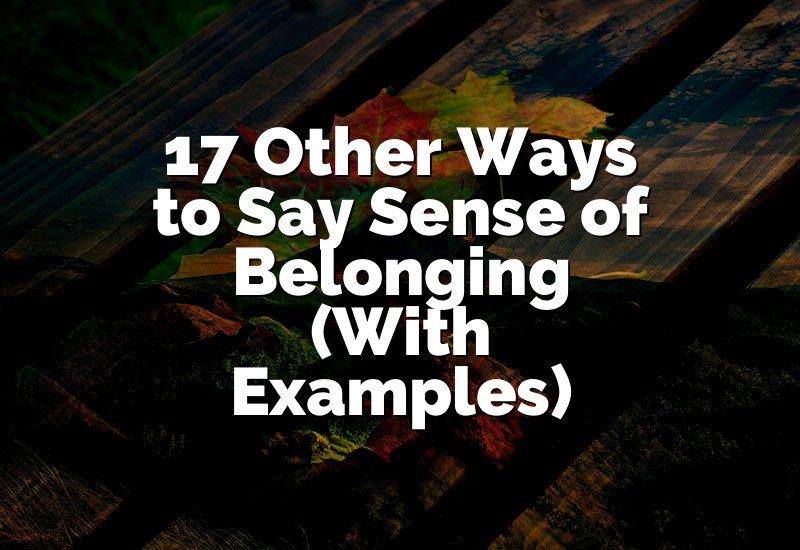You know that feeling when you’re trying to explain what you stand for but can't find the right word? We've all been there! Whether you're looking to mix things up in a conversation, or you need a fresh way to express your values, having a list of synonyms for “principle” is like finding a treasure chest of words! In this post, I'll walk you through 29 different synonyms for “principle,” each with fun, easy-to-understand explanations and real-life examples. Let's dive into it!
1. Value
A value is something you deeply care about or believe in. It's the core of your character. For example, honesty is a value for many people. If someone always tells the truth, no matter what, they are living by the value of honesty. Family could also be a value—many people prioritize family over anything else. Living by your values shapes how you make decisions. A person who values kindness will act kindly, even when it’s not the easiest choice.
2. Belief
A belief is something you hold to be true. It's like the foundation of your ideas and actions. For instance, someone who believes in hard work will put in the effort to achieve their goals. If you believe in equality, you’ll support fair treatment for everyone. Our beliefs guide the choices we make every day. Whether it's religious beliefs or personal convictions about what's right, your beliefs are like a map that helps you navigate life.
3. Standard
A standard is a level of quality or behavior that you expect or follow. Think of it like a rulebook for how things should be. For example, respect is a standard that many people follow in their relationships. If someone treats others with respect, they are meeting that standard. In schools, academic standards determine what students need to know to pass a class. A standard helps keep things consistent and fair, making sure everyone knows what's expected.
4. Rule
A rule is a guideline for behavior or actions. It's usually put in place to ensure order or fairness. For example, safety rules at work prevent accidents. The rules of the road keep drivers safe. Rules are created to guide what's acceptable and what's not. For instance, a parent’s rule might be that their children have to clean their room before they can play outside. Rules set clear boundaries, and without them, chaos can follow.
5. Code
A code is a set of rules or principles that a group of people agree to follow. It could be a moral code or a professional code. For example, doctors follow a medical code that prioritizes patient care. In schools, there's often a code of conduct that tells students how to behave. Codes are meant to ensure everyone in a group operates with the same understanding and expectations. When you follow a code, you align with a shared set of beliefs or rules.
6. Doctrine
A doctrine is a belief or set of beliefs held and taught by a group, such as a religious or political organization. For example, the Christian doctrine includes beliefs about God and Jesus. A political party might have a doctrine about what they think is best for society. Doctrines shape the way people view the world, guiding their actions and choices. They act like a blueprint for what is accepted as truth within a particular group.
7. Ethics
Ethics refer to the moral principles that guide a person’s behavior. For example, a doctor’s ethics might prevent them from harming their patients. Someone with strong ethics might make decisions based on what's right, not what's easiest. Business ethics guide companies to be honest and fair in their dealings. Ethics are what keep us from acting selfishly and ensure we treat others with respect and fairness. They're like the invisible rules that guide our choices.
8. Morality
Morality is about knowing what is right or wrong. It's about making decisions that align with your values and ethics. For instance, if you believe in honesty, it's morally wrong to lie. People with strong morality try to do the right thing, even if it's hard. Moral dilemmas often arise when two choices seem right but contradict each other. A good example is deciding whether to tell the truth if it might hurt someone’s feelings. Morality helps you navigate these tough situations.
9. Conviction
A conviction is a strong belief or opinion. It's something you feel deep in your heart. For example, if you have a conviction about protecting the environment, you might work hard to reduce waste and promote recycling. Religious convictions are often deeply held, guiding people in how they live their lives. People with strong convictions don’t easily change their minds. They stand firm in what they believe, even in the face of opposition.
10. Guideline
A guideline is a recommendation or principle that helps people make decisions. For example, health guidelines tell you how much exercise you need for a healthy life. If you're at work, there are guidelines on how to handle customer complaints. Guidelines are not strict rules, but they offer helpful advice on what's best in certain situations. They provide direction and help people act wisely, based on experience and common sense.
11. Tenet
A tenet is a principle or belief that is part of a larger system of ideas. For example, a major tenet of a religion might be believing in one God. In a workplace, a tenet of teamwork might be trust—where every member is expected to trust each other for the group to succeed. Tenets help define what is central to a belief system. They act as the foundation upon which everything else is built.
12. Foundation
A foundation is the underlying base or support for something. For example, the foundation of a building is what keeps it standing. Similarly, your personal values form the foundation for your choices and actions. In a relationship, mutual trust is often the foundation that supports everything else. Without a strong foundation, things can fall apart. That's why it’s important to build your life on solid principles that won't break under pressure.
13. Philosophy
A philosophy is a system of beliefs or ideas that guide someone's actions or decisions. For example, someone might live by a philosophy of kindness, always trying to treat others well. Another example is the philosophy of minimalism, where people try to simplify their lives by owning less stuff. A personal philosophy helps define who you are and what you stand for. It's like a roadmap for how you want to live your life.
14. Integrity
Integrity is about being honest and doing the right thing, even when no one is watching. For example, if someone finds a wallet on the street, integrity means they return it to its owner instead of keeping it. Professional integrity is key in jobs like law and medicine. People with integrity are trusted because they always do what's right, no matter how difficult. Integrity is like a reflection of your true character and values.
15. Belief System
A belief system is the set of beliefs and values that guide your life. For example, a spiritual belief system might include practices like prayer and meditation. A political belief system might guide how you vote and view certain issues. Everyone has a unique belief system, whether it’s based on religion, personal experiences, or culture. It shapes how you see the world and make decisions, providing structure and meaning to life.
16. Law
A law is a rule created by governments or societies to maintain order and justice. For example, traffic laws tell drivers when to stop and go, ensuring safety. There are also laws that protect human rights. Respecting the law is a principle that people are expected to follow. Laws are in place to guide behavior and ensure fairness for all, especially when it comes to major issues like theft or harm.
17. Tradition
A tradition is a belief or behavior passed down from generation to generation. For example, a family might have a tradition of eating dinner together every Sunday. Another example is the tradition of Christmas, where people exchange gifts and spend time with family. Traditions help keep cultural and family values alive. They're often tied to what people believe is important and worth preserving, offering a sense of identity and belonging.
18. Custom
A custom is a usual way of behaving or doing things in a particular place or group. For example, shaking hands when meeting someone is a custom in many countries. Another custom might be celebrating a specific holiday, like Thanksgiving in the U.S. Customs often reflect the values and principles of the people who practice them. They are an important part of social life, as they help define how people interact with each other.
19. Norm
A norm is a standard or usual way of doing something, especially within a community. For example, it's a norm to greet people when you meet them. In schools, it's a norm to raise your hand before speaking in class. Norms are rules that are not necessarily written down but are understood by everyone in a group. If you break a norm, people might look at you strangely, as it's seen as unusual or improper behavior.
20. Reputation
A reputation is the opinion or belief people have about you, based on your actions and behavior. For example, if someone has a reputation for being kind and helpful, others will expect them to act that way. Your reputation is built on the principles you follow, like honesty or loyalty. It's important to maintain a good reputation because it reflects how trustworthy and reliable you are in the eyes of others.
21. Legacy
A legacy is the lasting impact or effect you leave behind. For example, someone who spends their life helping others might leave behind a legacy of kindness. A legacy could also refer to a family tradition or business that's passed down for generations. The principles you live by—such as generosity or hard work—are often what define your legacy. People will remember you for how you lived, and that will influence future generations.
22. Approach
An approach is the way you handle a situation or problem. For example, a problem-solving approach might involve careful thinking and collaboration. A friendly approach means being open and welcoming to others. Your approach to life often reflects your principles, such as optimism or patience. Choosing a thoughtful approach to challenges can lead to better outcomes and help you stay aligned with your core beliefs.
23. Attitude
Your attitude is the way you think and feel about things, which affects how you act. For example, a positive attitude towards challenges can help you overcome obstacles. People with a can-do attitude often inspire others to stay hopeful. Attitudes are shaped by your principles, such as believing in the power of kindness or the importance of hard work. Your attitude often tells others a lot about what you value and believe.
24. Commitment
A commitment is a promise or dedication to something or someone. For example, someone might make a commitment to their career, working hard to achieve their goals. Commitment to family means spending time and supporting loved ones. Your commitment often reflects your principles, like loyalty and dedication. When you make a commitment, it shows that you’re willing to prioritize something that aligns with your values, no matter the challenges.
25. Priority
A priority is something that is considered more important than other things. For example, health is often a top priority for many people. If someone values family, spending time with family becomes a priority over other activities. Your priorities show what principles you live by, such as honesty, trust, or education. By setting priorities, you decide what matters most to you and focus your energy on those things.
26. Responsibility
Responsibility is the duty or obligation to do something. For example, being a good student comes with the responsibility of completing homework. Parents have a responsibility to care for their children, and a worker has a responsibility to do their job well. Having responsibility is often linked to principles like accountability and integrity. When you take responsibility, you show that you are reliable and trustworthy, and that you follow through on your commitments.
27. Duty
A duty is a moral or legal obligation to do something. For example, it is a duty to help someone in need if you can. Military duty requires soldiers to protect their country. In everyday life, your duty could be taking care of your family, paying taxes, or following the rules. Following your duty reflects your principles, such as honesty, respect, or loyalty. It's about doing what is expected of you, and doing it with care and dedication.
28. Trust
Trust is the belief that someone will act with honesty and integrity. For example, if you tell a friend a secret, you trust they won't share it. Trust in a workplace means believing your coworkers will do their part to help the team succeed. Trust is built on principles like loyalty and honesty. It's one of the most important parts of any relationship, and without trust, things often break down.
29. Honor
Honor is the respect and admiration you earn by doing what's right. For example, a person who keeps their promises is acting with honor. In many cultures, people are expected to behave with honor towards their family and community. Honor is tied to principles like integrity, truth, and loyalty. When you act with honor, others trust and respect you, and your reputation stays strong.

I hope you enjoyed discovering all these amazing synonyms for principle! With this list, you now have a variety of words to describe your beliefs, values, and behavior. Whether you’re writing, speaking, or just thinking about your principles, using different synonyms can make your language more colorful and meaningful. It's always fun to have a range of words at your disposal, don't you think?









